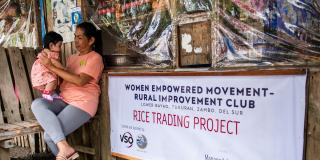
The Philippines frequently makes the media headlines due to intense typhoons and other extreme weather effects, which leave a trail of destruction in their wake.
In fact, the World Risk Index 2022 put the Philippines at the number one spot for the most-disaster-prone country in the world.1
Fishing is the primary source of income for communities inhabiting the coastal areas of Mindanao, southern Philippines. However, the increasing frequency of typhoons is having a catastrophic impact on the fishing industry, destroying coral reefs, the primary source of food for fish. In fact, over the last three decades, the world has lost half of its reefs.2
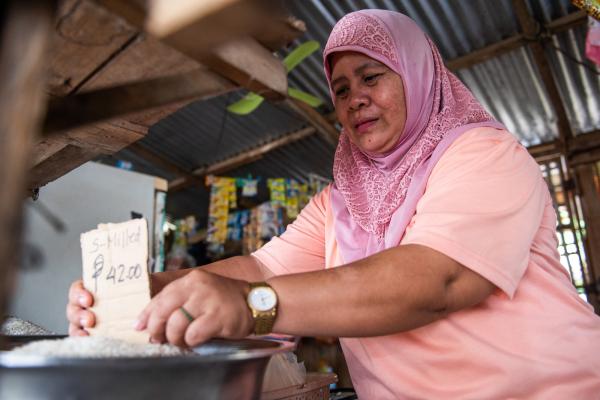
But amidst the unpredictable weather there is hope. Thanks to your support, a group of women in Mindanao are tapping into the rice industry to bring about sustainable change.
"Rice is life for Filipino communities and families."
Rice is incredibly important to Filipinos. Not only is it a food staple, but over 32% of the workforce in the country is involved in rice farming.3 It is the Philippines' main agricultural crop and is crucial for the country’s food security. It is often consumed for breakfast, lunch and dinner.
Rice trading provides an alternative income stream to the ever-uncertain situation around fishing, as when women are unable to catch fish, they can trade rice instead.
Here you can read the uplifting stories of two women who are members of a rice trading co-operative.
Joceyln’s story
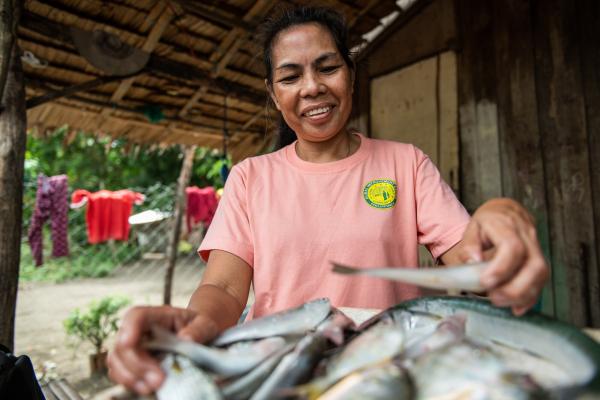
Jocelyn is a 51-year-old fisherwoman who runs a fish stall at the local market. She’s a mother of four and is the sole breadwinner of the family. Her husband is unable to work because of health and mobility issues. Being a woman and the primary earner of her household heaps stress on her shoulders.
"In my community, the woman's role in the family is to do all the cleaning and take care of the children. However, I also need to bring in money," she says.
Before, her primary income was from selling fish. However, unfortunately Jocelyn’s livelihood has been threatened by the increasing frequency of extreme weather and the unpredictability of fishing supplies.
But today, thanks to support from VSO she’s also a member of the rice trading co-operative.
"This means that even in extreme weather and when we don’t have any fish, women are also able to contribute to their families," Jocelyn explains.
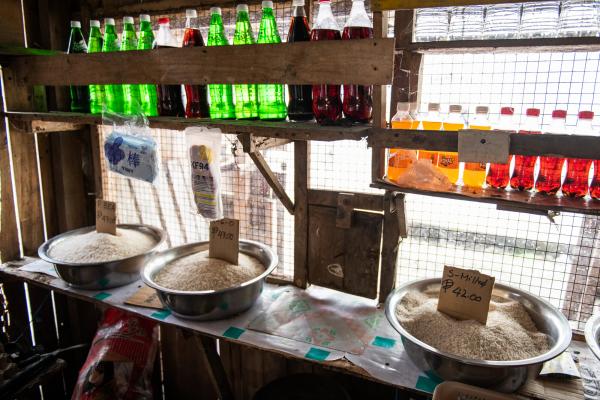
There’s a walk-in store where people from outside the organisation and neighbourhood come to buy rice. This income is included in the end-of-year income statement and shared between all members of the co-operative.
The rice trading project also enables women to purchase rice from the store at a cheaper price; they can save around 50 to 100 pesos (70p to £1.40 GBP) here compared to other places.
With the rice retailing project, members also have debit credit. This delays payment, giving them an additional 15 to 20 days to pay, which helps during periods of financial difficulty.
"This is helpful for me because I can still buy rice on credit when I don’t have money," Joycelyn explains.
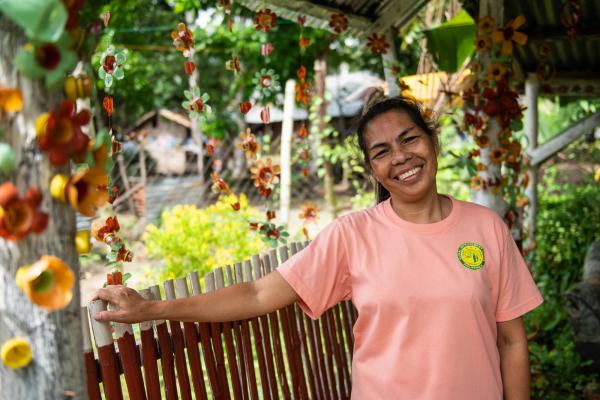
Furthermore, with rice being such an important food source, access to the grain through trading provides a level of food stability.
"In emergency situations, rice is really our primary staple food. Even if you don’t have any alam, (food or meat), you can just add soy sauce to rice, and then your family can eat and be sustained."
The benefits to the rice-trading group also go beyond providing alternative livelihoods. Due to the tight-knit, spirited nature of the community, the women come together to care for their coastal areas to mitigate the ever-pertinent effects of climate change.
"Our rice trading group also takes part in monthly coastal and community clean-ups." These clean-ups are particularly important, as the destructive nature of flooding can be amplified due to blockages and buildup of waste.
VSO is enabling those such as Jocelyn to come together to foster community spirit to develop climate resilience.
She feels really blessed and grateful to be a part of the rice retailing project.
Jamera’s story
Jamera is another formidable woman who has become part of the rice trading co-operative. Her husband sadly died in 2014, and she was left to support her three children alone through the sale of banana chips.
The pandemic had a highly detrimental impact on her livelihood and her quality of life.
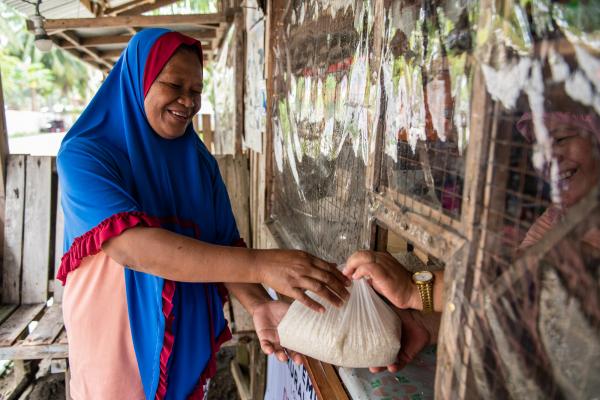
However, she joined the women-led rice trading group, and received assistance from VSO during the COVID-19 lockdown in her community. This included some emergency provisions provided by VSO in the form of 10kg of rice:
"I was very happy to receive that because at least I had something. Lockdown was very hard on me. I couldn't transport the banana chips to sell because the rules here were very strict and I couldn't leave the community."
She notes that big positive changes have happened in her life by being a member of the rice trading project.
"Before, I'd have to borrow credit from my neighbours. There are no banks here, so there's nowhere else I could get credit from. The money from the rice trading group helps me sustain my banana chip business, so I can buy more banana chips. It also helps me buy any necessities I can't afford."
Through the rice trading project, Jamera and other members have seen their income grow. She explains what she could do with the improved remuneration.
"With this extra income I might use it to replace the children's old shoes or school uniform. Sometimes I use it to pay off my credit. Sometimes they want to eat chicken, so if we have spare money, I'll take them to a restaurant so I can give them a treat and expose them to what life can be like."
Looking to the future
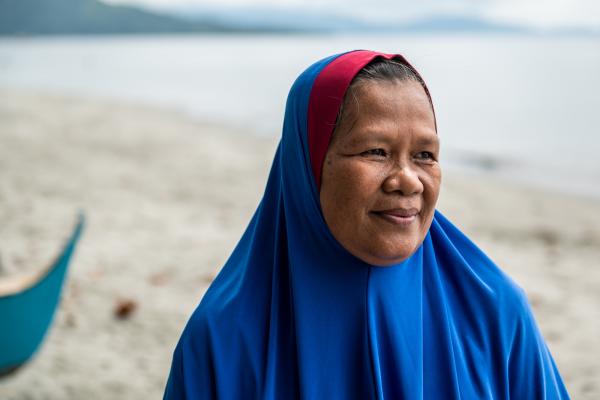
Jocelyn hopes that things can continue to change for the better for her kids.
My hope for the future is that my children will graduate from school so that they won’t have to experience the hardships that I’ve endured in the past just to sustain my family."
She wishes that her community can continue to work towards sustainability: "I just want us to be able to sustain our livelihood, so that we can have peace, even if it’s only simple living. It doesn’t have to be too much, because we can work on it."
Meanwhile Jamera wants her children to become professionals and be good people in their community. She hopes that she can support them through her work.
With the help of all our wonderful supporters, inspiring women such as Jocelyn and Jamera can maintain access to alternative livelihoods, create lasting change, and reach their aspirations for the future.
Active Citizenship Through Inclusive Volunteering and Empowerment (ACTIVE)
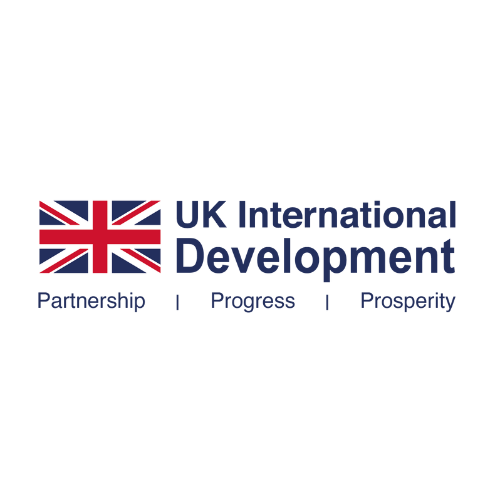
Footnotes
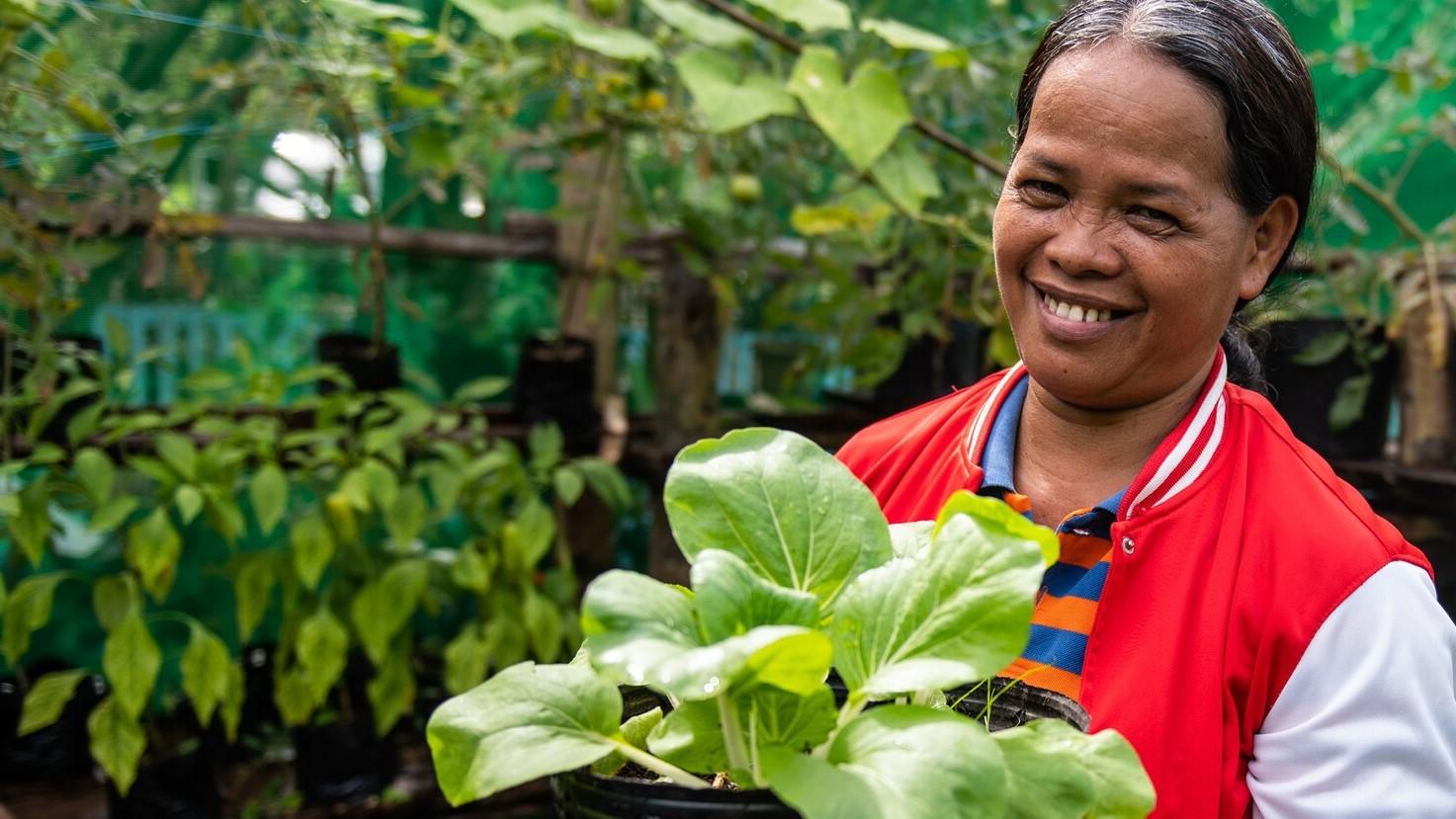
Support us with a donation
Read more
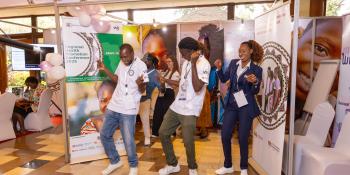
Highlights from the Regional Health Promotion Conference 2025
The Regional Health Promotion Conference 2025 reimagined Universal Health Coverage (UHC) through the lens of intersectionality, by bringing together experts from across East Africa and beyond.
Protecting the biodiversity of the East Tonlé Sap Lake through aquaculture
Aquaculture — the farming of aquatic organisms, such as eels, shellfish, and seaweed, in a controlled environment — is transforming the lives of Cambodian people like Mr Em Phat.
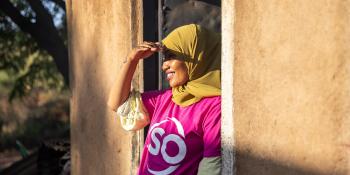
Five things women achieved this year that you might not know about
This International Women's Day, join us in celebrating the resilience of women across the globe with some female achievements you might not have heard about.
